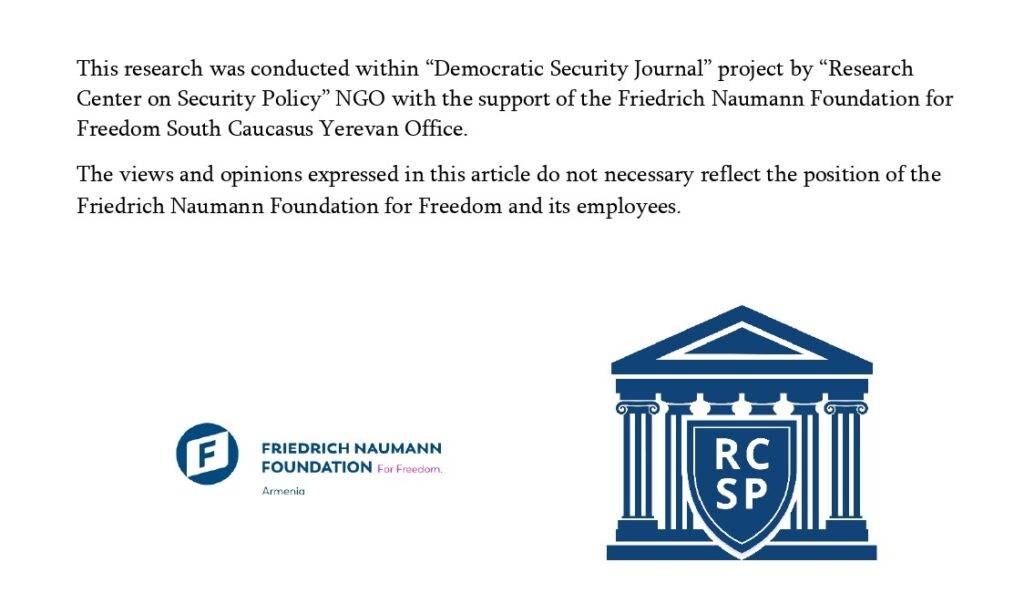With just over a month remaining until the end of the European Union Mission in Armenia’s (EUMA) two-year mandate, Azerbaijan has significantly hardened its rhetoric against the European observers, accusing them of being destructive, biased, and even engaging in espionage. The Armenian side, however, is more than interested in maintaining the EU mission, taking into account its political and security role.
EUMA as a Stabilizing Factor
Following Azerbaijan’s latest aggression against Armenia’s sovereign territory in 2022, the European Union, based on the results of the Pashinyan-Macron-Michel-Aliyev quadrilateral meeting in Prague and responding to Yerevan’s request, deployed a two-month civilian mission on the Armenian side of the Armenia-Azerbaijan international border from October 20 to December 19.
On January 23, 2023, the EU Council decided to deploy a new EU monitoring civilian mission in Armenia for a two-year term. The speed of the decision was unprecedented and was also supported by France’s backing. Initially, the mission staff was set at 100, but in December 2023, the EU Council expanded it to 209 observers. The mission operates along the Armenian-Azerbaijani border on the Armenian side, conducting patrols in border regions and providing regular and situational reports to Brussels about the prevailing situation, military movements, and ceasefire developments. The observers are essentially the EU’s “eyes on the ground,” and their reports contribute to a more impartial and comprehensive understanding of the situation.
Notably, since the deployment of the EU civilian mission, no large-scale escalations have been recorded at the border, and despite isolated incidents, tensions have decreased significantly.
The European Union also proposed deploying a mission on the Azerbaijani side, but Ilham Aliyev rejected it. Regarding EUMA, Azerbaijan’s position has changed over time. Initially, Baku limited itself to raising various questions about its operations, but over time, this approach transformed into explicit criticism.
The campaign against the EU civilian mission in Armenia became more systematic in early 2024, when European observers began to be targeted by Azerbaijan’s Foreign Ministry and even the president. Baku is also irritated by visits of various international figures to the Armenian-Azerbaijani border accompanied by EU civilian mission representatives. Azerbaijan accuses the observers of “binocular diplomacy,” which is allegedly used for anti-Azerbaijani propaganda.
The Azerbaijani side’s accusations are also full of false claims and allegations. For example, Azerbaijani propaganda outlets claim that European observers are engaging in espionage and collecting intelligence about Azerbaijan, Iran, and Russia, supposedly planning provocations, contributing to tension escalation, and even becoming a NATO infrastructure.
Notably, the Russian side is also conducting an information campaign against the EU monitoring mission. Several narratives spread by Russian official circles and state media are identical to the Azerbaijani ones.
The Azerbaijani side is not limiting itself to just an information campaign. In peace treaty negotiations with Armenia, Baku is trying to achieve formulations that would imply the closure of the EU mission in Armenia. This refers to excluding the presence of third forces on the Armenian-Azerbaijani border, which, according to the Azerbaijani side, should exclude not only military but also civilian presence.
The Armenian side opposes such interpretation of the provision, emphasizing the EU civilian mission’s role in strengthening regional stability. Due to this difference in approaches, this point of the peace treaty remains unagreed upon to this day.
To finalize the treaty, the Armenian side has proposed removing EU observers from the demarcated sections of the Armenian-Azerbaijani border. Baku has not officially responded yet, but the campaign against the observers continues.
Azerbaijan’s Opposition to the EU Civilian Mission in Armenia
One of the reasons why Azerbaijan criticizes the monitoring mission in Armenia and tries to achieve its closure is Baku’s constraint in its actions. While the presence of the EU civilian mission cannot fully guarantee stability at the border, it serves as a serious deterrent for Azerbaijan. Baku naturally wants to get rid of it, considering that the use and threat of force still occupy an important place in the Azerbaijani leadership’s toolkit. The absence of observers would only facilitate the possibility of applying forceful pressure against the Armenian side.
Azerbaijan’s adopted position is also conditioned by the issue of occupied territories from Armenia. The EU monitoring mission, which patrols along the border, records the presence and movement of Azerbaijani forces in Armenia’s sovereign territory. Moreover, various foreign delegations visiting Armenia have the opportunity to personally see the consequences of Azerbaijani occupation when visiting the Armenian-Azerbaijani border with the mission. Such additional attention certainly does not serve Azerbaijan’s interests. Aliyev has repeatedly publicly acknowledged the fact of capturing strategic heights along the border, emphasizing that they provide an opportunity to observe deep into Armenian territory. Aliyev shows no intention of withdrawing from these strategically important regions in the medium term, and the closure of the EU monitoring mission would also reduce international attention to this issue.
The presence of EU observers at the border also hinders Baku’s information campaigns against Armenia. For various purposes, the Azerbaijani side periodically spreads false accusations about alleged ceasefire violations by Armenia, troop movements, and buildups, claiming that Armenia is preparing for war. All these false claims have been repeatedly nullified by the EU mission’s refuting statements. The latest such example was in early December, when the mission declared that it had not noticed any unusual movements on the Armenian side amid the latest fake news circulating in the Azerbaijani press.
After the complete ethnic cleansing of Nagorno-Karabakh, Azerbaijan positions itself as the region’s hegemon, whose military, economic, and political supremacy must be taken into account by external actors when developing their policies in the region. Given regional developments, the closure of the monitoring mission would, according to Baku, seriously undermine the EU’s position in the region.
In summary, we can note that the EU monitoring mission, besides its security importance for Armenia, also has political significance. It is another direction of cooperation with the European Union, an important component of the EU presence in the region, and evidence of the Armenian side’s constructiveness.
Taking all this into account, we can unequivocally state that extending the mission’s mandate is in Armenia’s vital interests, and it is quite important that Yerevan’s discussions with European partners in this direction are successfully concluded.
In the medium term, depending on changes in the situation on the ground, the Armenian side can also consider possibilities for reviewing the EU mission’s mandate, taking into account the experience of more than 20 EU civilian and military missions in different regions. The new mandate could include issues related to ensuring border security, capacity development, and increasing Armenia’s resilience.
Author: RCSP associate expert Narek Minasyan


